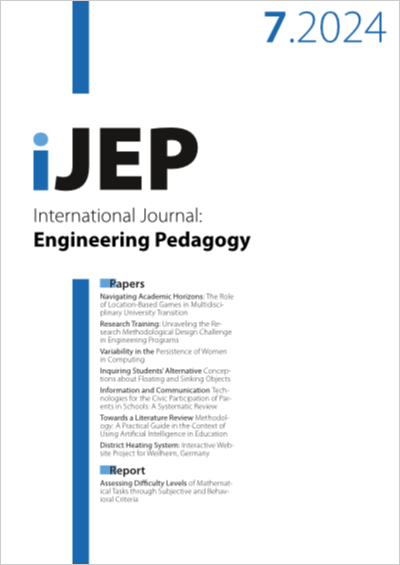Research Training: Unraveling the Research Methodological Design Challenge in Engineering Programs
DOI:
https://doi.org/10.3991/ijep.v14i7.48987Keywords:
formative research, research-based learning, researcher competencyAbstract
Research training stands out as a means to develop generic competencies, potentiate lifelong learning (LL), and integrate initiatives for compliance with the 17 Sustainable Development Goals (SDGs), contributing to the development of a resilient society. Therefore, the constant promotion of a research culture within higher education institutions is an essential task for reducing the gap between scientific productivity and industry challenges and proposing solutions to real-life challenges. One of the main stages involved in any research process is the proposition of a methodological design: a detailed plan conceived and later developed to answer the research questions. Nevertheless, within the engineering context, even though a wide range of methodological designs are considered, these are not always explicitly stated in research papers, so at the undergraduate level there is an absence of more precise guidelines that allow a more concise orientation. Consequently, at this level, a challenge in research training is perceived. This provided a motivation: the development of a framework for the actors involved in research training at the engineering undergraduate level so that they can easily define the methodological design. In this context, the present research proposes a framework organized upon the two main phases of every research process: design and execution. The framework is expected to promote the proper use of research methodology among engineering students. Furthermore, the methodological design from 140 selected civil engineering papers from seven different knowledge fields is analyzed. Results show that 94.29% of the papers did not explicitly present the methodological design. It was concluded that there is an absence of it within the engineering field. Thus, a methodological design framework proposal for engineering students was developed to overcome this situation.
Downloads
Published
How to Cite
Issue
Section
License
Copyright (c) 2024 Alexandre Almeida Del Savio, Katerina Galantini Velarde, Ludy Caceres Montero, Monica Vergara

This work is licensed under a Creative Commons Attribution 4.0 International License.



